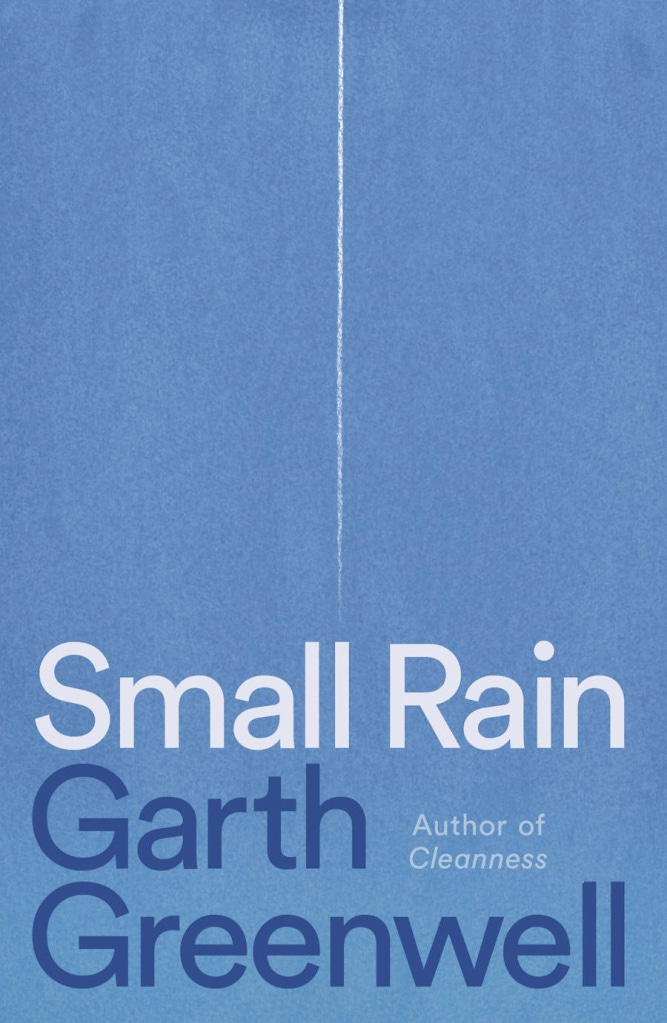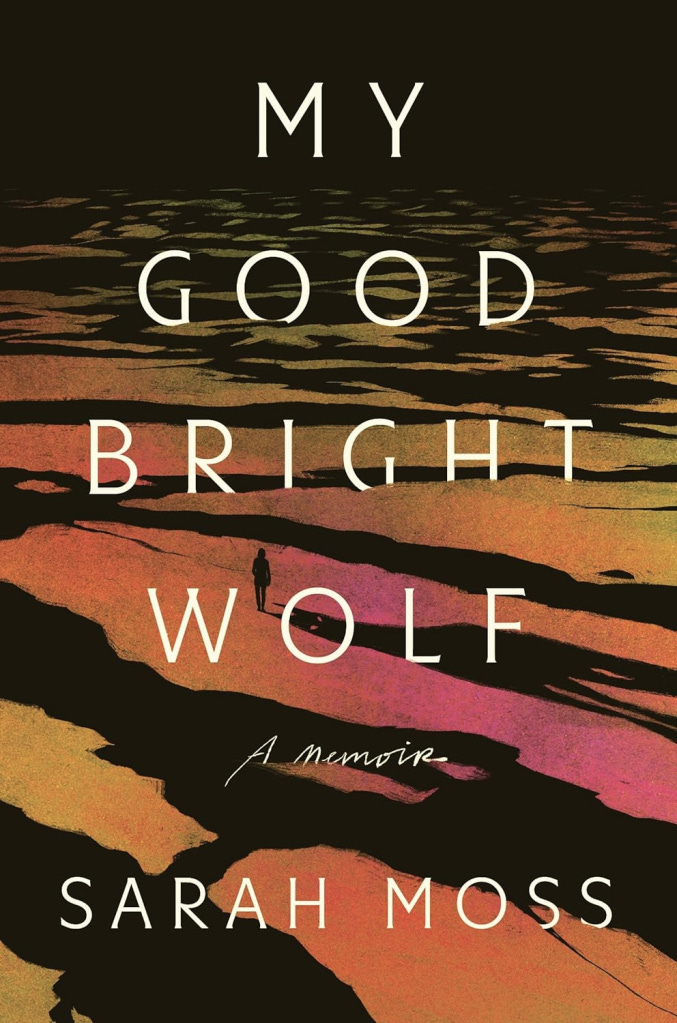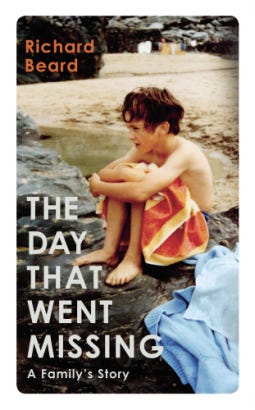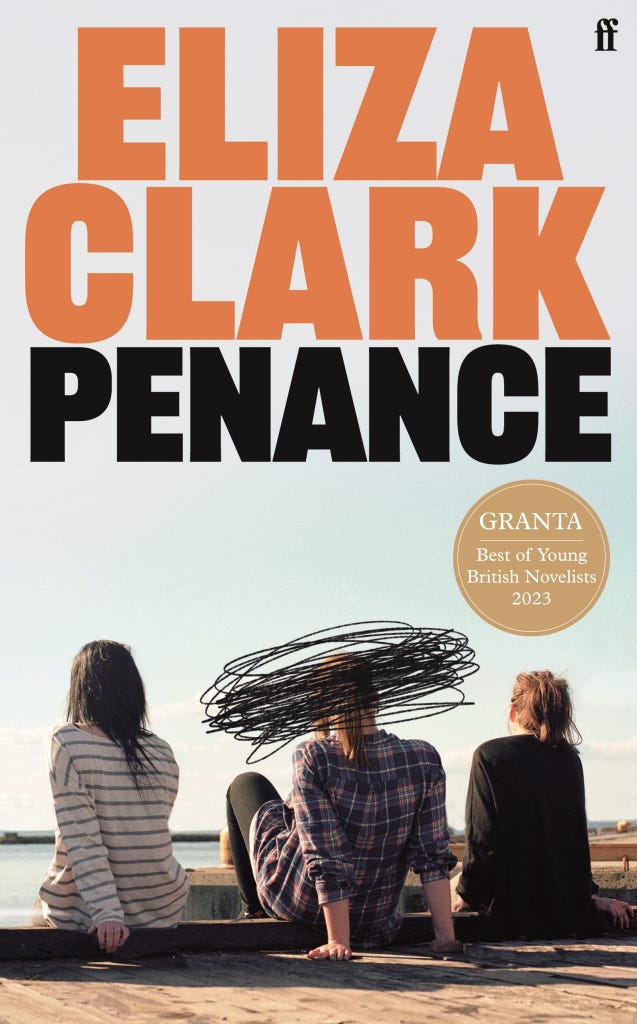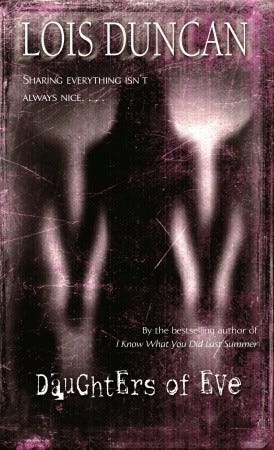Books I've read in 2024, part III
This post will take me up to where I’m currently at with my reading, in October.
Creation Lake by Rachel Kushner
“We were doing what European activists spend hours and hours doing: simply talking.”
This was often good, sometimes okay, and I enjoyed reading it. Now that some time has passed I think I feel more positively about the book – I don’t agree with Brandon Taylor’s review at all.
I thought the beginning was really strong, the middle a bit confusing but still good (setting up a lot of chess pieces), and the ending a bit disappointing. Again, now that some time has passed, I think I feel more ‘positive’ about the ending – I think I was a bit tricked at the time to think of this as a thriller, which is not correct.
My favourite parts of the book were Bruno’s emails. If this was Kushner’s main reason for wanting to write this book (to have philosophical musings from an ‘anticiv’ character living in a cave and obsessed with the Neanderthals) I was 100% on board. If this guy existed IRL I would 100% subscribe to his Substack, lol. I also liked the Sebaldian-like essays part about random elements of French culture/history, Polynesian sailors, politics + political action, etc. It would be interesting to compare this book to Telex in Cuba in terms of the theme of revolutionary external action vs. ‘plumbing’ inside yourself, doing the internal reflective work.
I also really liked the 1st-person voice and her character in general. “My banal and conventional looks have served me well. People think I look familiar. Have I met you? they ask. But I’m merely what white women are meant to look like.” I loved the scene in the beginning where she pees on the side of the road and sees a pair of women’s underwear, and thinks about the kind of woman the underwear might have belonged to: “Her world is full of disposability.”
I was often confused by the timeline/the number of characters in this but I think the Kindle formatting of my ARC might be to blame for this (I don’t think it was showing the formatting correctly i.e. page breaks etc). Also my brain is just not what it once was due to hormones. I didn’t let being confused bother me, I just read on in blissful tranquility.
I thought the book could have done a better job of having more satisfying dramatic pay-offs but again I think I was ‘tricked’ into reading this as a thriller and thus having this expectation. I liked how Kushner was paying attention to entertaining the reader throughout (this is something I think The Mars Room did SO well).
Overall I’m glad I read this – I think Birnam Wood is a stronger book, but perhaps not fair to compare the two novels. If you’re a Kushner fan there is a lot to enjoy here. Definitely one of the most substantive, skilled, and interesting writers of our times!
What is it people encounter in their stark and solitary four a.m. self? What is inside them? Not politics. There are no politics inside of people. The truth of a person, under all the layers and guises… the quiet truth… is a substance that is pure and stubborn and consistent. It is a hard, white salt.”
“The point of this maxim was that bringing down capitalism would require a more robust imagination. But just because something is harder to imagine does not mean it’s correct.”
“‘To live in a cave and renounce technology, renounce everything, that’s like’ – he laughed – ‘about the most modern thing a person could ever do.'”
A Frozen Woman by Annie Ernaux
Hmm this is maybe the weakest Ernaux I’ve read so far (it’s one of her early ones). It was interesting though to see early traces of her later style/obsessions. After reading this, I really see why she decided keeping things SHORT and RAZOR SHARP and FOCUSED was the route she wanted to go when writing about memory. I would describe this as having a more breathless, racing, frantic quality than her other books. I was reminded sometimes of Comyns’ Sisters By A River (probably the best book I’ve ever read about childhood). Elena Ferrante, too (esp. the part about marriage/raising children). Overall I enjoyed this, but it did feel a bit scattered and all over the place. My favourite bits were the beginning, about her childhood, and the final 50-70 pages, about becoming a mother. The parts about her being a young woman are better handled elsewhere (Happening, A Girl’s Story). It kind of lacks a strong conclusion. So I don’t regret reading this but I don’t think I’d go out of my way to recommend this to people.
Small Rain by Garth Greenwell
“What a little time it takes to part us from the life we knew.”
This will definitely be one of my top reads of the year. It’s a book about ILLNESS and DEATH, and mainly takes place in the narrator’s head. But I could NOT put it down. I loved all the Magic Mountain vibes of being like, oh my God, I am just a body, I am just a piece of meat. The data of the body collected by the hospital vs the abstract poetry the narrator has spent his life studying/teaching. And yet it is an incredibly uplifing, hopeful, and spiritaul read. A very impressive achievement.
I’m sometimes wary about books that read like they’re just a transcription of the author’s personal experience. You could VERY, VERY easily read this novel as a collection of Garth Greenwell’s thoughts and reflections. Yiyun Li’s recent story in the New Yorkeris a good counterpoint of an author using FICTION and FICTIONAL TECHNIQUES to write about a very difficult personal experience rather than, like, memoir-ish techniques (i.e. conflation between narrator and writer).
So for me it was hard not to read this particular novel as a conflation/transcription (i.e. this is a book about what happened to me). But one of the themes in the book is WHAT IS THE POINT OF ART and WHAT CAN ART HELP US WITH, WHAT CAN ART DO. I was SO down with these passages. Oh my God, I was so moved! Yes, I am 100% the main audience for these kinds of reflections but so what!!
I also thought the technique of the book (the run-on sentences) and the shift between memory and present-tense in the hospital was expertly handled. You can really tell that Greenwell’s training as a poet has trained him incredibly well in terms of being attentive to the energy of the language on the page. His background as a poet also serves him well in terms of another theme of the book that I loved – the importance of paying a particular kind of attention, to small unremarkable moments. Yes!!! This is achieved most memorably in a close reading of this poem, which was my favourite part of the whole book (it’s worth reading the whole novel, I’d say, for this passage alone). It is SUCH a refreshing antidote to fucking TikTok ADHD consumer culture!!!
I loved the book’s focus on the theme of love and happiness. I also loved the scene between him and the house contractor and how this leads to a reflection on the importance of ‘loving your neighbour’ – “that’s more important to me now than the purity of my life, than living with absolute integrity.”
I would strongly recommend this book to any fan of literary fiction and anyone who’s working in the humanities/arts sector.
Quotes about the value/point of art that I loved:
“The song articulated something that had been inarticulate before, but it did more than that too, it created something; it didn’t just light some chamber of myself that had been dark, it made a new chamber, somehow, it made me capable of some feeling I couldn’t have felt before. It humanised me, I want to say.”
“All art is a message, we want to communicate something but maybe not an entirely graspable something, maybe there’s a kind of sense only nonsense can convey; so that the poem becomes not just a message but an object of contemplation, of devotion even, inexhaustible. It had been my whole life, puzzling over phrases, trying to account for the unaccountable in what art makes us feel; it had been my whole life, sometimes it had seemed a full life and sometimes a wasted one, it had felt full and wasted at once.”
“The only technologies I knew anything about were antiquated, unnecessary technologies: iambic pentameter, functional harmony, the ablative absolute. They were the embellishments of life, accoutrements of civilization, never the necessary core – though they were necessary to me, I thought, no matter how sick I might be they were still necessary to me.”
“It’s also why we need poems, I think: they exist in a different relationship to attention and to time; it’s impossible for harried students worrying about their exams, for harried readers checking their phones, to see and feel what’s happening in them. Whole strata of reality are lost to us at the speed at which we live, our ability to perceive them is lost, and maybe that’s the value of poetry, there are aspects of the world that are only visible at the frequency of certain poems… Read it again, read it more slowly, that was the whole of my pedagogy when I taught my students, who were pressured everywhere else to be more efficient, to take in information more quickly, to make each moment count, to instrumentalize time, which is a terrible way to live, dehumanizing, it disfigures existence.”
My Good Bright Wolf by Sarah Moss
Definitely one of the best books I’ve read this year. I could NOT put it down; I basically read it in two sittings. Oh my God, I’m so glad that in my early 30’s I read Marion Woodman’s Addiction to Perfection (thank you Tori Amos!!) – it 100% saved my brain (not that my brain is, like, perfectly healthy, but whose is?).
I thought as a memoir this was absolutely fantastic, truly exceptional – the use of surreal techniques, the switch between second and third person, the use of academic close readings (most memorably Little House on the Prairie, Little Women, Jane Eyre, Swallows and Amazon,, Dorothy Wordsworth’s diaries). I would LOVE to read her PhD thesis on representations of food and eating in early modern literature. I’m fascinated by her recent comments on the use of the ‘choral voice’. I also thought the theme of balancing the life of the mind (art, writing) and a life of caretaking was really fascinating, as were her observations about the white woman obsession with thinness/health/wellness (see Naomi Klein’s Doppelganger for a similar discussion) and how that ties into a discourse of control/power/superiority over others. “You don’t think you find other people’s fatness repellant, you don’t think you believe that your thinness is superior to other people’s larger bodies, but you certainly act as if you do. You can see exactly how the moralizing of health and strength and thinness complies with supermacist thinking; you just can’t stop behaving as if you agree.” Really interesting to see Gen Xers reaching the point in their lives where they’re writing memoirs that examine the beliefs they were raised with (looking forward to my fellow millennials hitting their mid-40s and doing likewise!).
Overall, my heart went out for the narrator of this book so, so much when reading this. I underlined like ten billion passages. Truly the best thing that Generation Z has given us (besides their love of Kafka and worship of the dark under eye circle) is the idea that all bodies are beautiful and acceptable. Hope that Gen X-ers and my fellow geriatric millennials take note! Moss is truly one of great UK writers at work right now.
“The purpose of writing is not competitive suffering. The making of art is always both privilege and necessity, always dependent on other people doing other work in the kitchen and in the nursery and in the library, in the fields and the factories. No making of art – or love, or war, or peace, or dinner – without a body, no body without food.”
The Day That Went Missing by Richard Beard
After reading Sarah Moss/Ernaux I wanted to read a few more memoirs. This is a very poignant story, about the author witnessing the drowning of his younger brother as a child. Was maybe a bit long. The opening chapter (the drowning scene) and the detective-like investigation throughout the book, the hunt for facts and knowledge, made for an interesting and powerful read. A big theme of the book is the Emotional Repression of the English.
I was an eleven-year-old boy telling myself stories. Nicky needed to be forgotten. I have persuaded myself that the drowning of a small boy who was also my brother, in front of my eyes only hours earlier, could barely disturb my sleep. Everything’s fine, I don’t feel bad.
Question 7 by Richard Flanagan
What is a writer but a robber and what is the history of literature but a milky way of theft?
I’m glad I read this; it was very impressively structured and written. I liked it but didn’t love it (if that makes sense). It must have been absolute hell to draft and organise this. It’s written in a fragmented, choppy style, leaping from one tale to the next, in which his father’s stint as a slave laborer in a Japanese camp leads to the dropping of the atom bomb in Hiroshima which leads to HG Wells affair with Rebecca West which leads to the Hungarian scientist Leo Szilard who invented the idea of the nuclear chain reaction and wrote a collection of short stories called The Voice of the Dolphins. Szilard was part of a group of scientists known as The Martians (thus connecting back to Wells’ War of the Worlds, who contributed to the invention of ice nine in Kurt Vonnegut’s Cat’s Cradle, which takes us to the bombing of Dresden, and then we also get the genocide of aboriginal people of Tasmania, which inspired Wells War of the Worlds. And we also get a chapter about Flanagan’s near death experience at age 21 in a kayaking accident. So as you can see very Rings of Saturn, very butterfly effect, very one thing leads to another, very internet tab-esque. It’s obviously presenting a view of time in which many things happen at once, many things as simultaneously true, and the chain/cause of effect is pretty overwhelming. I admired this a lot but didn’t love it, which is more of a testament of me + personal taste rather than a comment on the the book itself. This is definitely a very impressive achievement.
Penance by Eliza Clark
“‘There’s a bit of you that’s always a teenager, isn’t there? It’s the most traumatic time of loads of people’s lives, and… even the most mentally healthy and put-together adults are still… there.'”
“Real people were scarier than monsters, she decided.”
Eliza was in Norwich some time ago for the Crime Writing fest – why didn’t I go?? I must have been doing something, somewhere.
I have a somewhat silly self-imposed ‘rule’ in which I don’t read a debut until the author has their third book come out/about to come out… occasionally I make an exception for this if the book REALLY catches my attention (say “The Coin”). So I’d been looking forward to reading Eliza Clark for quite some time.
Well, I thought this was just SENSATIONAL. Dark, funny, fucked up. I know someone who thinks Clark’s writing benefitted from not doing a creative writing course and it is VERY tempting to agree. It was just fascinating for me to read this, particularly about The Youth using Tumblr in 2012-2013, playing the Sims, writing school shooter fanfic, the tulpa subreddit in which adults claim to be able to manifest cartoon characters and have intense relationships with imaginary friends (this REALLY blew my mind – fucking hell), etc.
I especially loved the moment on the Discord in which a poster wrote the following (about the murder victim who is brutally tortured and set on fire while still alive): I think it’s very likely this so called ‘victim’ bulied her and deserved it. Its cr*zy to me that you could be in this fandom and not instinctively understand that hurt people hurt people and that often their ‘victims’ are not victims at all but deserving ab*sers. Disgusting that so many of you are out here potentially supporting an ab*ser. Oh my God, so dark and so on the money! The theme of culpability throughout this is a really interesting one, as is the role of fantasy and escape, and the cultural obsession with true crime and violence.
Clark is definitely a major talent and 100% deserves to be on that Granta list. I would love to read a book like this about young men – specifically the way they use the Internet (video games, porn, Twitch…). I wonder if the publishing industry would support it.
“Honestly, who isn’t dead annoying when they’re like fourteen.”
“My old friends were a bit like ‘gross why are you talking to her she bites people’ but I was just like um… duh, because she gets invited to everything… obviously”
“Teenagers are morbid, and a lot of them – particularly in recent years, with podcasts and stuff – a lot of them make being into serial killers their entire personality. I just thought it was an affectation – there are a lot of very functional adult women with the same affectation.”
“Sometimes she wondered if she was a psychopath. She googled it all the time and tried to make the diagnosis fit. But she was too sad, and too fearful, and too well behaved to qualify. She was another lightly depressed, middle-class-ish teen. A poster girl for the ‘Teen Mental Health Crisis Plaguing Our Youth’ – a girl among a million other somewhat sad girls, with no real problems beyond a vague existential angst.”
Death of a Bookseller by Alice Slater
After reading Penance I wanted to read another crime-y book, so I chose this one by a UEA graduate. A fun and entertaining read – very Patricia Highsmith.
Boy Parts by Eliza Clark
Glad I read Penance first as it’s a much stronger and formally interesting/riskier/ambitious book. This is really striking, though! Especially in terms of the voice. 100% a writer to watch – can’t wait to read her short story collection. I recommend this book to students all the time. I have a colleague who thinks Clark’s strength as a writer comes from not having studied creative writing in university…
Daughters of Eve by Lois Duncan [reread; childhood fave]
I LOVED this book in high school and it was so mental reading an ‘updated’ version of it! Classic cult story. Still very topical and timely in terms of its depiction of female ‘revenge.’ I admire the way she handled so many different POVs and such a large cast of characters. I probably spent too much money buying this book, but I just really, really felt like rereading it…
Babel by RF Kuang [audiobook]
This was a really fun audiobook to listen to! I liked how the guy did the different voices. My favourite parts were the footnotes and the translation theory bits. I kind of lost interest in the last third but you have to give Kuang credit for choosing to ESCALATE and be very ruthless and cruel towards her characters. This book made me think about the changing role of protest in today’s world as discussed in this article. I’d really love to read an essay that engages with the way protest is depicted in this book – is the protest’s success maybe the biggest ‘fantasy’ element we encounter here?
Overall this would be a great book for teenagers (and I mean that as a compliment). Kuang is a real talent, a wonderful storyteller, ambitious, and clearly well read. I really like how she engages with the literary canon, and how this is a novel of ideas that engages with some genuinely tough questions that the book itself doesn’t/can’t answer (most specifically, what would the world look like after violent, destructive revolution?). THIS is the kind of fantasy I like – in contrast to A Court of Thorns and Roses which I tried reading and just found incredibly shallow and basic, I just COULDN’T proceed… I also like that she’s an Olivia Rodrigo fan! I am 100% here for this kind of youth contribution to cultural production!!
Carrie by Stephen King
I did not like this I’m afraid (maybe because the story is just so well known it didn’t have any tension for me?), but I respect its position in literary/horror history etc. I thought it was a little cartoony, especially in the depiction of the mother (product of its time and so forth). I did like the ‘assemblage’ form in which it was written though. I’ve also never seen the film, believe it or not… King definitely has a great imagination.
Intermezzo by Sally Rooney
So many hot takes on this book! I loved it – if anything I think Rooney is underrated. Like Anne Tyler she makes it look easy… but it is so, so not. I really like how she pushed herself stylistically in this via the Ulysses imitation, and I like how her books are frequently in conversation with other books. I did think certain scenes/character dynamics were resolved a bit too easily/happily, and would have benefited from more conflict/tension/unpredictability. Specifically I thought it was very convenient that Sylvia and Naomi immediately liked each other and got along. Overall Rooney is definitely a gem, a literary treasure, and someone who clearly loves literature and respects it tremendously. A++
And Now We Have Everything: On Motherhood Before I Was Ready by Meaghan O’Connell
I skim-read the “getting pregnant” part at the beginning but enjoyed the rest of it, especially the birth and post-partum scenes. *looks around furtively while whispering quietly* Idk why so many people say “motherhood needs to be depicted honestly, with all of its brutality and difficulties”, I feel like that is all I see???? Maybe it is just the media/cultural products I consume? I liked reading about her trying to balance her writing career in this book.
I didn’t want to simply endure, I wanted to ‘enjoy the experience’… Was motherhood going to make everything in my life better, make me better, or was it going to ruin everything?
I opened my laptop and immediately felt like a genius. It turned out writing was easy compared to taking care of a baby. Writing was something I knew how to do, technically. No one’s life depended on it.
The creeping revelation: if I let him, my son will be the reason I don’t do all sorts of things. I’m starting it already.
The time after the baby feels like an oblivion, like anything could happen. I don’t even know who I will be after him.
How will my reading change after having my CHILD?? TO BE CONTINUED…





